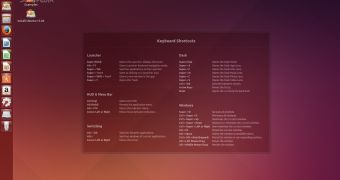The adoption of systemd in Debian has caused quite a ruckus, but it has other ramifications. For example, Ubuntu will soon use systemd by default, most likely in Ubuntu 15.04. The community has put together a great wiki page that explains the differences between upstart and systemd and how you use it right now.
The Ubuntu development team didn't sit idle and they have already implemented systemd in Ubuntu 15.04. This is still under development and it will remain in this stage for a few more months. Users can now choose the init system they want, from the GRUB entry, but it's always nice to know why this change is happening and what some of the cool stuff that you can do with system is.
The community has put together a comprehensive Wiki entry that explains pretty much all you need to know. If you didn't know already, Ubuntu is based on Debian, so most of the core changes will be felt in Ubuntu as well. As you can imagine, systemd is a pretty important package, so it was just a matter of time until it landed in the OS from Canonical.
Systemd is already present in Ubuntu 15.04
Most of the Linux users don't really know much about systemd and its function, and they don't really need to. It's not something that really matters in the day-to-day life and few people would actually notice if the change were done overnight, without their knowledge. This doesn't stop users from taking sides in an argument, so it's always good to have a proper source for documentation.
"This document compares Upstart and systemd with a view to aiding in the transition to the latter. If you are running Ubuntu vivid (15.04), you can easily switch between upstart and systemd at will since both packages are installed at present. In grub, select "Advanced options for Ubuntu", where you will find an "Ubuntu, with Linux ... (systemd)" entry. This will boot with init=/lib/systemd/systemd," reads the first entry on the SystemdForUpstartUsers users.
There is a lot of information of the wiki, including numerous tutorials that have simple stuff like starting a service in systemd, various useful commands, and even debugging procedures. It goes without saying that you should not use a production machine. Enjoy!

 14 DAY TRIAL //
14 DAY TRIAL //